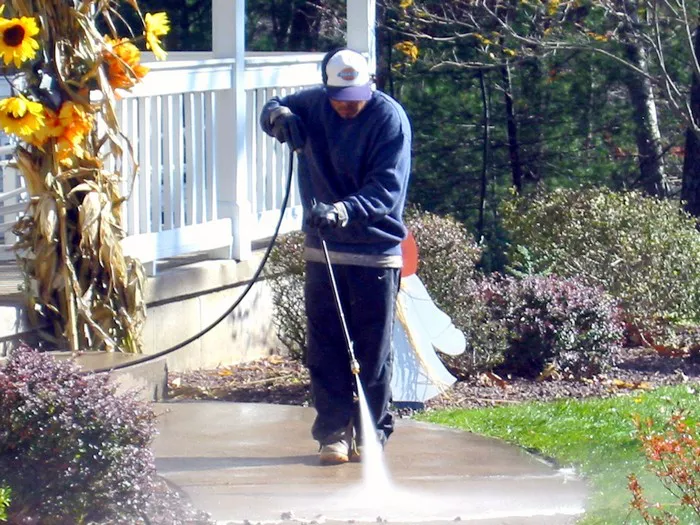Power washers are invaluable tools for cleaning various surfaces using pressurized water. However, users may be concerned about the electricity consumption of these machines and its impact on energy bills. Understanding how much electricity power washers use and factors affecting their energy consumption can help users make informed decisions.
Relevance of Electricity Consumption
Power washers, also known as pressure washers, are commonly used for cleaning driveways, sidewalks, decks, and other outdoor surfaces. However, users may wonder about the electricity usage of these machines, especially if they are concerned about energy conservation or managing utility costs.
Power Washer Energy Consumption
Power Requirements
The energy consumption of a power washer depends on its power source. Electric models typically have wattage or amperage ratings, while gas-powered models are rated in horsepower. Electric power washers usually range from 1,200 to 2,000 watts, while gas-powered models can have varying horsepower ratings.
Electricity Usage
Electricity usage can vary based on several factors, including the size and power of the motor, pressure settings, and duration of use. Higher-powered motors and higher pressure settings generally result in increased electricity consumption. Additionally, longer usage durations will consume more electricity over time.
Electric vs. Gas-Powered Models
Electric Power Washers
Electric power washers are generally more energy-efficient than gas-powered models. They have lower operating costs and consume less electricity during use. Electric models are suitable for most household cleaning tasks and offer quieter operation and easier maintenance.
Gas-Powered Power Washers
Gas-powered power washers, while offering higher pressure and portability, tend to consume more energy due to the operation of the combustion engine. They are ideal for heavy-duty cleaning tasks or locations where access to electricity may be limited. However, they may not be as cost-effective in terms of electricity usage.
Factors Affecting Electricity Consumption
Pressure Settings
Adjusting the pressure settings on a power washer can impact electricity usage. Higher pressure settings require more power to operate the pump and motor, resulting in increased electricity consumption. Users should adjust pressure settings according to the cleaning task at hand to minimize energy usage.
Usage Duration
The duration of use and frequency of power washer usage also affect electricity consumption. Extended or frequent use will result in higher energy bills. Users can reduce electricity usage by optimizing cleaning processes and minimizing idle time.
Energy-Saving Features
Automatic Shut-Off
Some modern power washers are equipped with automatic shut-off features to conserve energy when the machine is not in use. This feature helps reduce standby power consumption and can lead to significant energy savings over time.
Energy-Efficient Motors
Certain power washer models come with energy-efficient motors designed to minimize electricity usage while maintaining performance. These motors consume less power during operation, making them more cost-effective and environmentally friendly.
Comparative Energy Costs
Comparison to Household Appliances
To provide context for users, it’s helpful to compare power washer electricity usage to common household appliances. While power washers may consume more electricity per hour of use compared to appliances like refrigerators or washing machines, their usage is typically intermittent and shorter in duration.
Cost Per Use
Users can calculate the cost of electricity consumption per use or over a specific period based on local electricity rates. This calculation helps users understand the financial impact of power washer usage and make informed decisions about when and how to use the machine.
Environmental Considerations
Carbon Footprint
Electricity consumption associated with power washing contributes to carbon emissions and environmental impact. Users should be mindful of their energy usage and consider adopting energy-efficient practices to minimize their carbon footprint.
Alternative Energy Sources
To mitigate environmental impact, users can explore alternative energy sources such as solar power or wind energy for powering their power washers. Renewable energy options reduce reliance on fossil fuels and lower carbon emissions associated with electricity consumption.
Tips for Reducing Electricity Usage
Choose Energy-Efficient Models
When purchasing a power washer, users should opt for models with energy-saving features and high-efficiency motors. These models consume less electricity during operation and offer long-term cost savings.
Optimize Usage
Users can optimize power washer usage to minimize electricity consumption. This includes using lower pressure settings whenever possible, avoiding unnecessary idle time, and planning cleaning tasks efficiently to minimize energy waste.
Conclusion
In conclusion, understanding power washer electricity usage is essential for users looking to manage energy costs and minimize environmental impact. Factors such as power requirements, pressure settings, and usage duration influence electricity consumption. By choosing energy-efficient models, optimizing usage, and considering alternative energy sources, users can reduce electricity usage while still enjoying the benefits of power washing. It’s crucial for users to assess their cleaning needs and choose energy-efficient models to minimize electricity usage and environmental impact.

